
Internal Medicine
Internal medicine is a broad medical specialty that deals with the diagnosis and treatment of diseases of the internal organs. It includes a variety of sub-disciplines such as cardiology, gastroenterology, endocrinology, nephrology and many more. In the context of health tourism, internal medicine provides high-quality medical care to international patients seeking specialized treatments and advanced therapies. Health tourism in Turkey has established itself as a leader in providing world-class medical services, supported by modern facilities and highly qualified medical specialists.
Most important treatments in internal medicine
1. Cardiology
Cardiology deals with diseases of the heart and blood vessels. The most common treatments include the diagnosis and therapy of heart attacks, heart failure, arrhythmias and coronary heart disease.
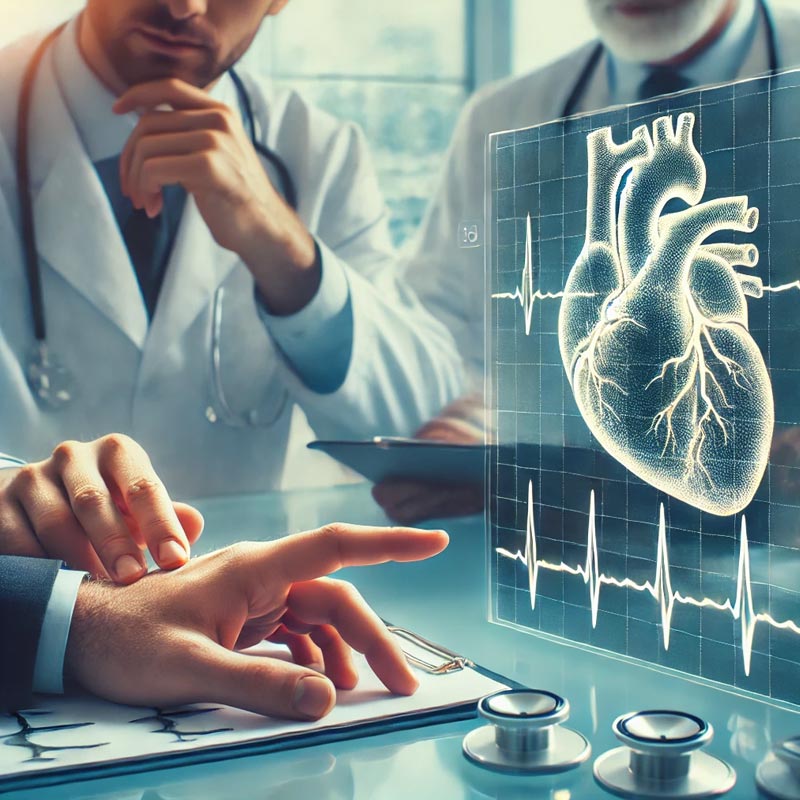
Process:
- Diagnosis: ECG, echocardiography, stress tests and cardiac catheterization.
- Therapy: Drug treatment, angioplasty, stent implantation and bypass surgery.
- Recovery: Postoperative monitoring, rehabilitation and long-term cardiovascular monitoring.
Recovery process
After cardiological procedures, intensive monitoring takes place in specialised wards. Rehabilitation can take several weeks, during which patients learn to lead a heart-healthy lifestyle.
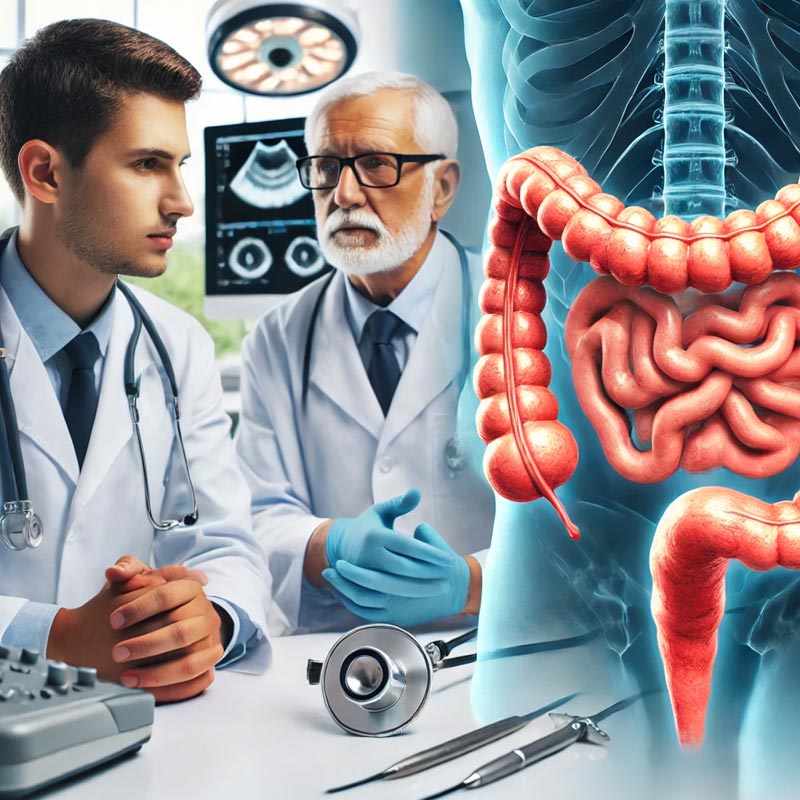
2. Gastroenterology
Gastroenterology deals with diseases of the digestive system, including the esophagus, stomach, intestines, liver, gallbladder and pancreas. Important treatments include therapy for reflux disease, irritable bowel syndrome, liver disease and inflammatory bowel disease.
Process:
- Diagnosis: endoscopy, colonoscopy, ultrasound and liver function tests.
- Therapy: Drug treatment, endoscopic procedures and surgical resections.
- Recovery: Dietary adjustments, long-term drug therapy and regular check-ups.
Recovery process
Recovery varies depending on the procedure. Endoscopic procedures often require short recovery times, while surgical procedures require longer hospital stays and recovery periods.
3. Endocrinology
Endocrinology deals with hormonal diseases, the most common being diabetes, thyroid disorders and hormonal imbalances
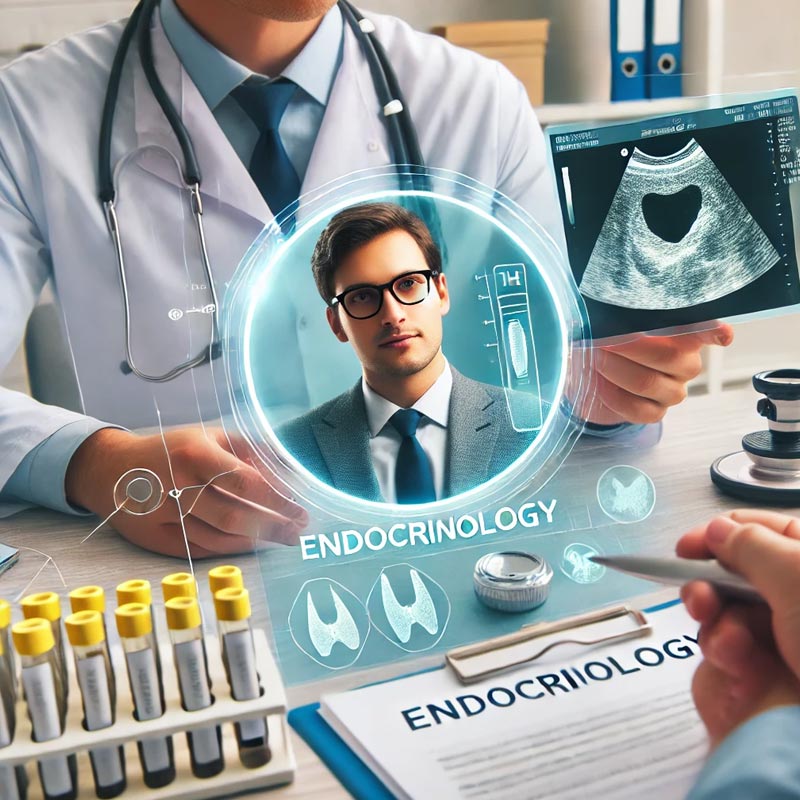
Process:
- Diagnosis: blood tests, ultrasound, MRI and hormone level measurements.
- Therapy: Drug treatment, hormone therapy and in some cases surgical intervention.
- Recovery: Regular monitoring of hormone levels and adjustment of therapy.
Recovery process
Recovery and treatment of endocrinological diseases requires long-term care and regular visits to the doctor to adjust therapy.
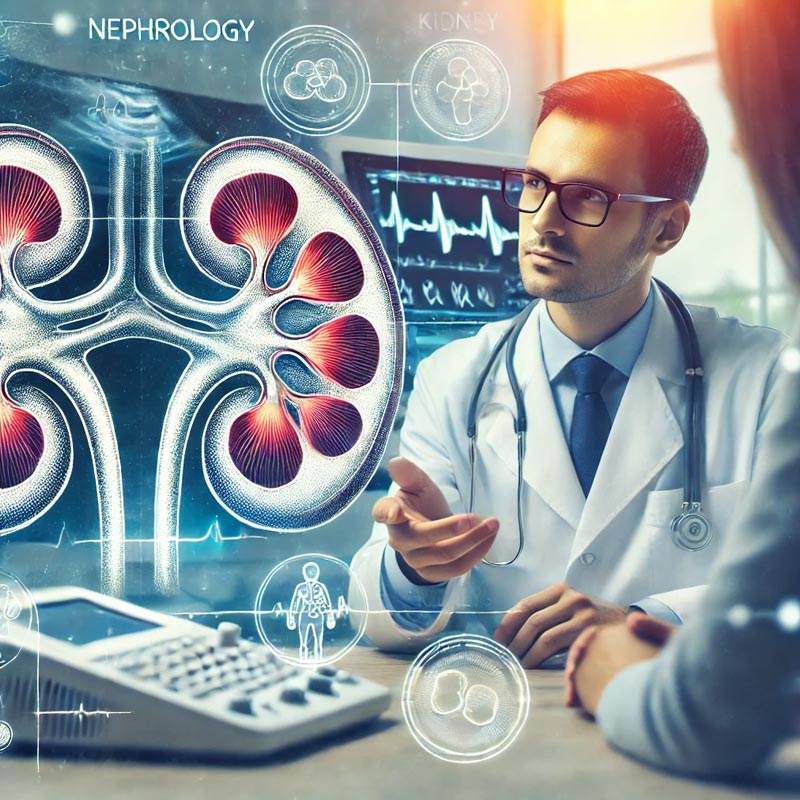
4. Nephrology
Nephrology deals with kidney diseases. Common treatments include chronic renal failure, kidney stones and high blood pressure.
Process:
- Diagnosis: blood and urine tests, ultrasound and kidney biopsies.
- Therapy: Drug treatment, dialysis and kidney transplants.
- Recovery: follow-up care and adjustment of medication and lifestyle changes.
Recovery process
Patients with kidney disease require long-term care, especially after dialysis or transplantation. Regular check-ups and strict adherence to therapy are crucial.
5. Oncology
Oncology is the diagnosis and treatment of cancer. The most common treatments include chemotherapy, radiation therapy and surgery.
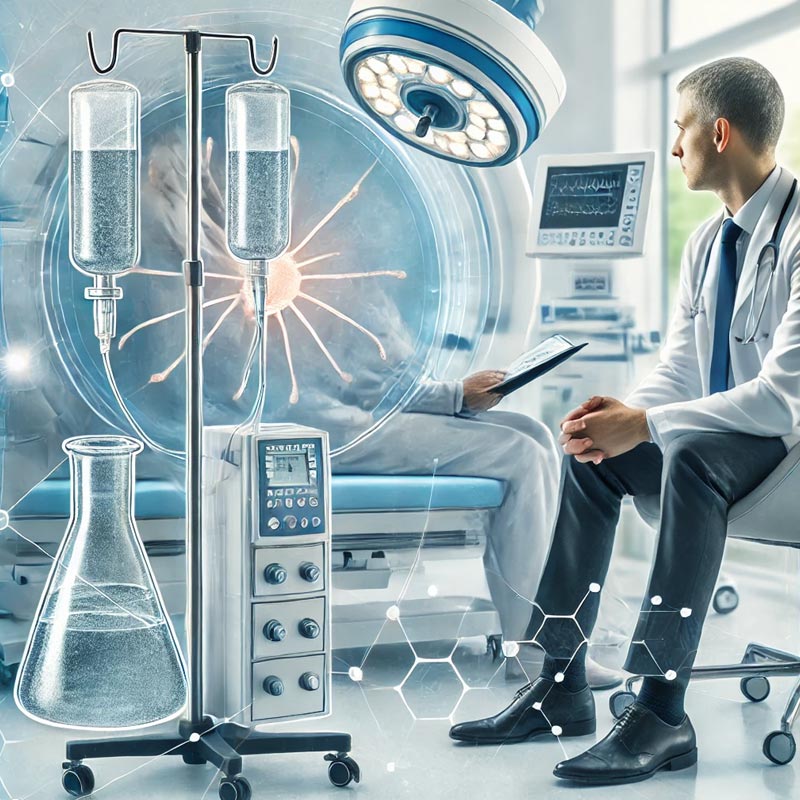
Process:
- Diagnosis: biopsies, imaging (CT, MRI) and blood tests.
- Therapy: Combination of surgery, chemotherapy, radiotherapy and targeted therapies.
- Recovery: Regular follow-up examinations, rehabilitation and psychological support.
Recovery process
Recovery from oncology treatments can be lengthy and requires multidisciplinary care. Monitoring for recurrences and managing side effects are crucial.
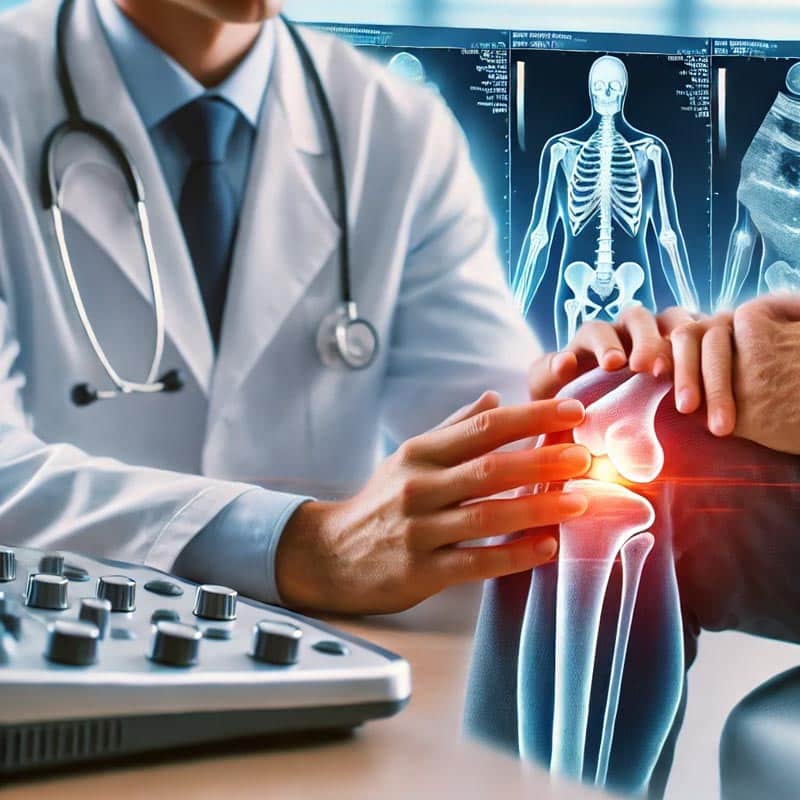
6. Rheumatology
Rheumatology treats autoimmune and inflammatory diseases of the joints and connective tissue, such as rheumatoid arthritis and lupus.
Sequence
- Diagnosis: blood tests, x-rays and MRI.
- Therapy: Drug treatment, physiotherapy and, in severe cases, surgical intervention.
- Recovery: Long-term drug therapy and regular monitoring.
Recovery process
Rheumatological diseases require continuous care to control symptoms and prevent complications.
7. Pulmonology
Pulmonology deals with diseases of the lungs and respiratory tract, such as asthma, COPD and pneumonia.
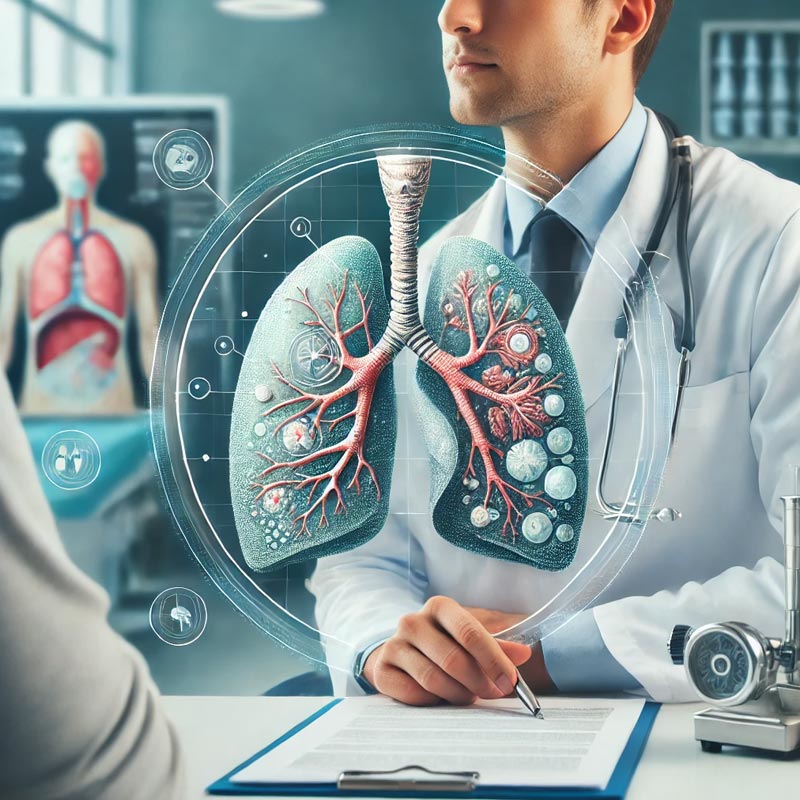
Sequence
- Diagnosis: Pulmonary function tests, X-rays, CT scans and bronchoscopy.
- Therapy: Drug treatment, respiratory therapy and, in severe cases, surgical intervention.
- Recovery: Adjustment of medication and regular check-ups.
Recovery process
Treatment of lung disease often requires long-term therapy and regular doctor visits to monitor lung function.

8. Hematology
Hematology is a specialized branch of internal medicine that deals with the diagnosis, treatment and prevention of blood diseases and disorders of the blood-forming system. These include disorders such as anemia, leukemia, lymphoma, thrombocytopenia and hemophilia. Turkey has established itself as a major attraction for health tourism, especially in the field of hematology, due to its advanced medical facilities and highly qualified medical specialists.
Sequence
- Diagnosis: blood tests, x-rays and MRI.
- Therapy: Drug treatment, physiotherapy and, in severe cases, surgical intervention.
- Recovery: Long-term drug therapy and regular monitoring.
Recovery process
Rheumatological diseases require continuous care to control symptoms and prevent complications.
Conclusion
The field of internal medicine offers a wide range of specialized treatments that are particularly in demand in health tourism. With the latest technology and highly qualified specialists, international patients can receive first-class medical care in Turkey. Each treatment requires individual care and follow-up to ensure the best possible results and a quick recovery.
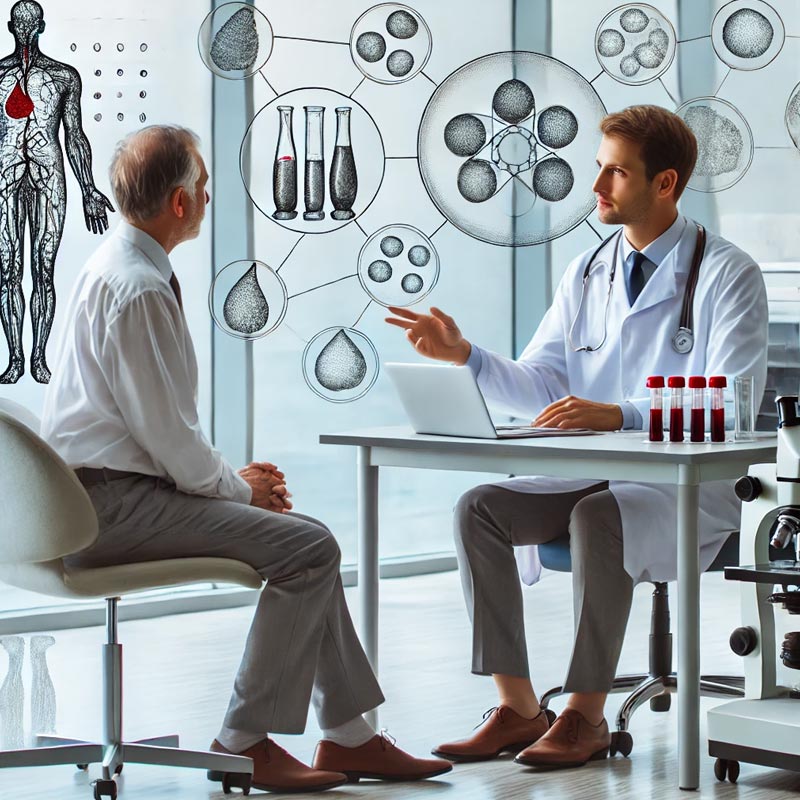
hematology
Hematology is a specialized branch of internal medicine that deals with the diagnosis, treatment and prevention of blood diseases and disorders of the blood-forming system. These include disorders such as anemia, leukemia, lymphoma, thrombocytopenia and hemophilia. Turkey has established itself as a major attraction for health tourism, especially in the field of hematology, due to its advanced medical facilities and highly qualified medical specialists.
The most important treatments in hematology
1. Anemia
Anemia is a condition in which the number of red blood cells or the level of hemoglobin in the blood is reduced, resulting in a reduced supply of oxygen to the body.
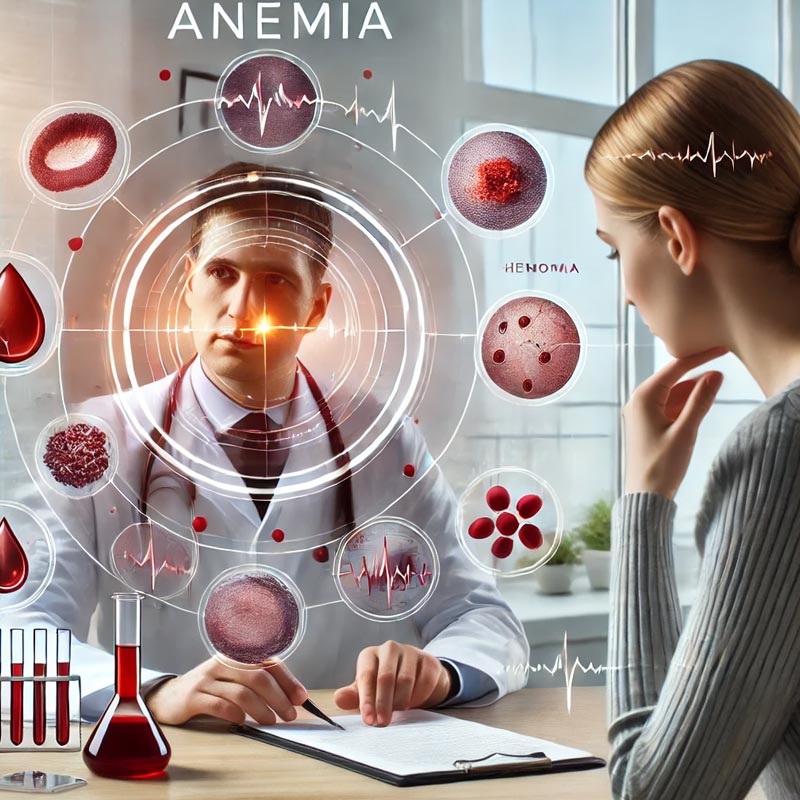
Sequence
- Diagnosis: Blood tests to determine hemoglobin levels, red blood cells, and iron levels in the blood. Other tests may include a bone marrow biopsy.
- Therapy: Depending on the cause of the anemia (iron deficiency, vitamin B12 deficiency, chronic diseases), iron supplements, vitamin B12 injections or other specific treatments may be prescribed.
- Recovery: Regular blood tests to monitor treatment success and adjust therapy.
Recovery process
Rheumatological diseases require continuous care to control symptoms and prevent complications.
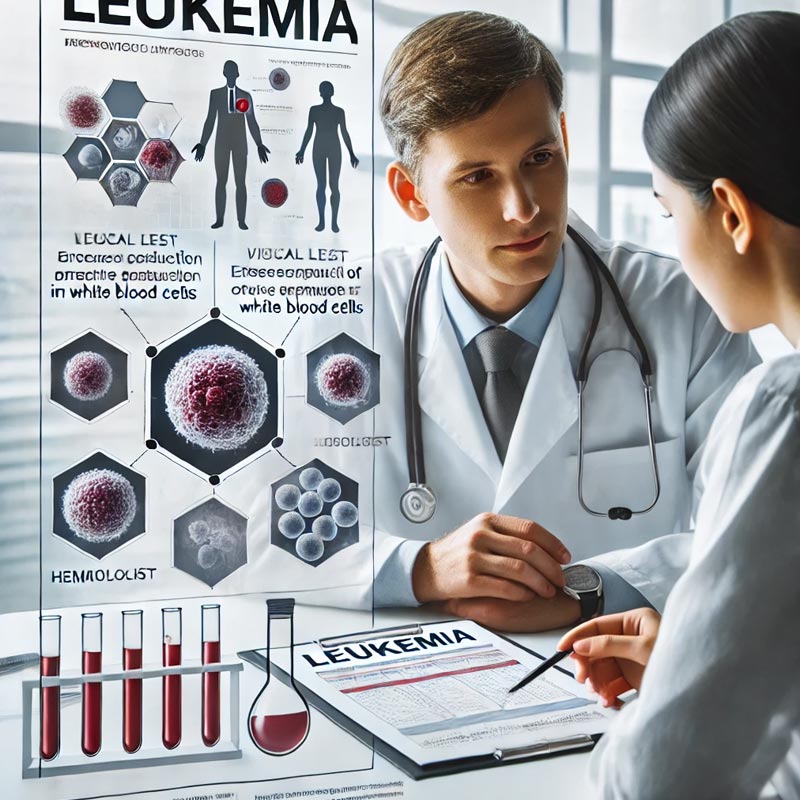
2. Leukemia
Leukemia is a cancer of the blood-forming cells in the bone marrow that leads to excessive production of immature white blood cells.
Sequence
- Diagnosis: Blood tests, bone marrow biopsy, and imaging tests such as CT or MRI scans.
- Therapy: chemotherapy, radiotherapy, targeted therapy and stem cell transplantation. The choice of treatment depends on the type of leukemia (acute or chronic) and the general health of the patient.
- Recovery: Intensive follow-up care and regular check-ups to monitor the course of the disease and the success of the therapy.
Recovery process
Recovery can be lengthy and requires frequent hospital stays and close cooperation between patient and doctor. The prognosis varies depending on the type of leukemia and response to therapy.
3. Lymphomas
Lymphomas are cancers of the lymphatic system that are divided into two main types: Hodgkin lymphoma and non-Hodgkin lymphoma.
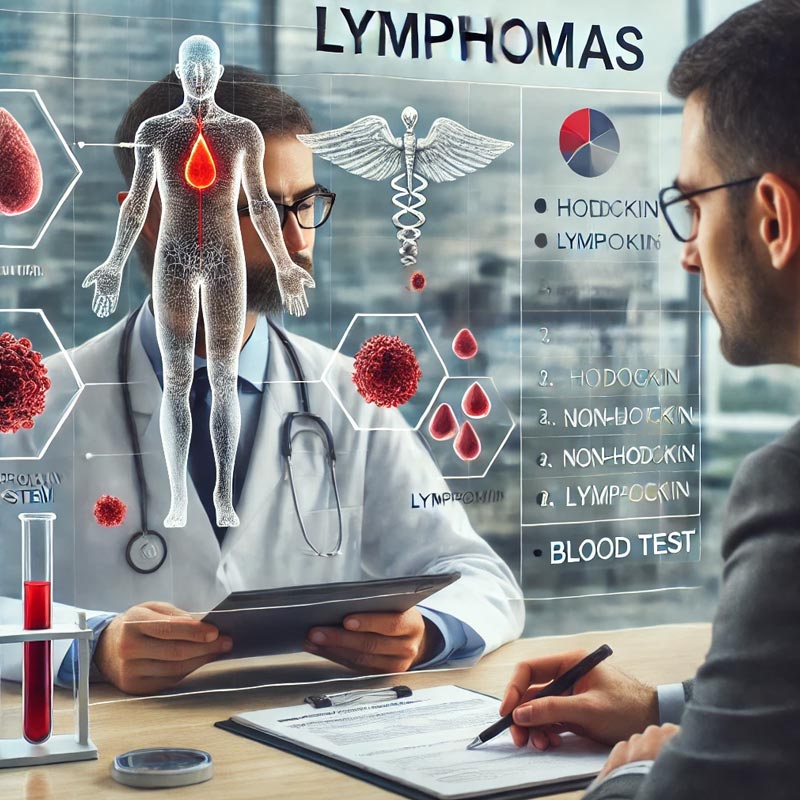
Sequence
- Diagnosis: Physical examination, blood tests, lymph node biopsy, imaging tests and PET scans.
- Therapy: Chemotherapy, radiotherapy, immunotherapy and stem cell transplantation. Therapy depends on the type of lymphoma, the stage and the patient’s health status.
- Recovery: Regular follow-up examinations, monitoring of side effects and adjusting therapy if necessary.
Recovery process
Recovery and prognosis depend on many factors, including the type of lymphoma and response to treatment. Many patients can achieve long-term remission after successful therapy.
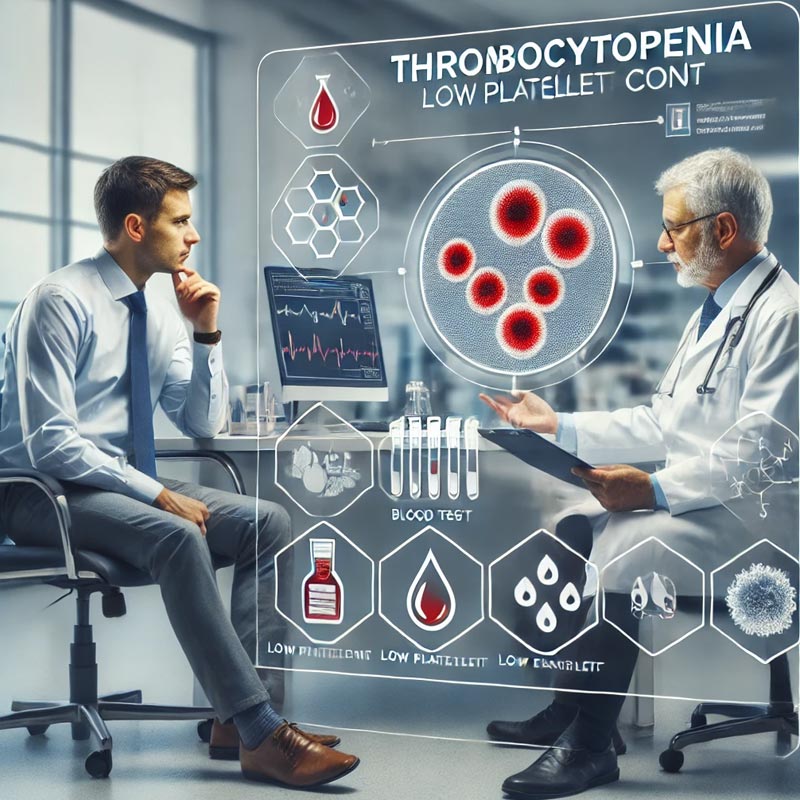
4. Thrombocytopenia
Thrombocytopenia is a condition in which the number of platelets (thrombocytes) in the blood is low, leading to an increased tendency to bleed.
Sequence
- Diagnosis: Blood tests to determine platelet count and other coagulation parameters. A bone marrow biopsy may be necessary to determine the cause.
- Therapy: Treatment of the underlying disease, immunoglobulin therapy, steroids and platelet concentrates. In severe cases, splenectomy (removal of the spleen) may be considered.
- Recovery: Regular blood tests to monitor platelet count and adjust therapy.
Recovery process
Recovery depends on the cause and severity of thrombocytopenia. With appropriate treatment, platelet counts can be stabilized and the risk of bleeding reduced.
5. Hemophilia
Hemophilia is a genetic disorder of blood clotting in which certain clotting factors are missing or present in insufficient amounts, which can lead to severe bleeding.
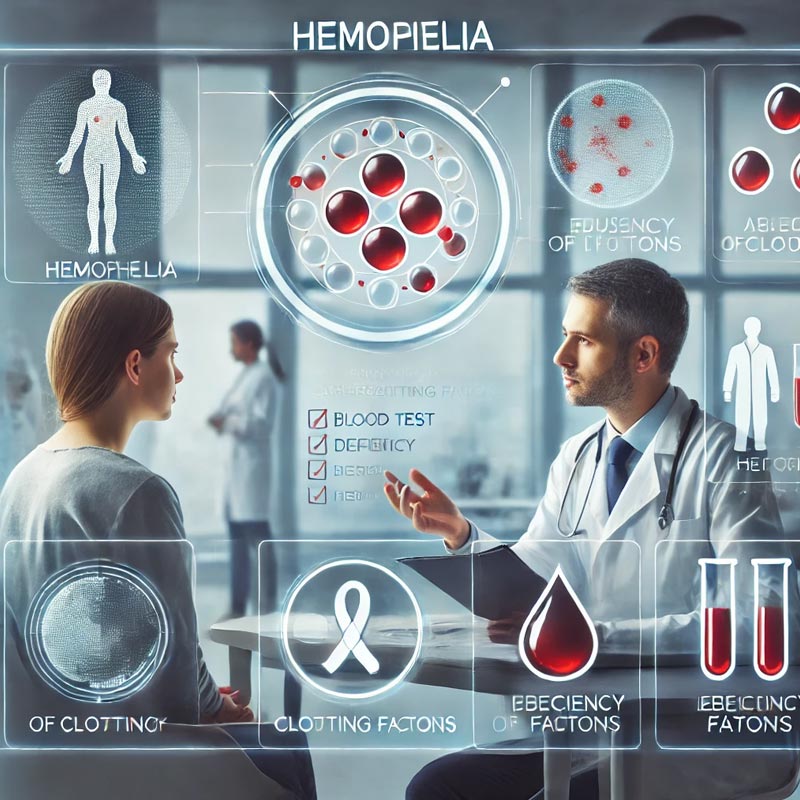
Sequence
- Diagnosis: Blood tests to determine clotting factors and genetic tests.
- Therapy: Regular injections of the missing clotting factor, either prophylactically or when needed. Newer treatments include gene therapy and emicizumab.
- Recovery: Continuous monitoring and management of bleeding risks. Physical therapy to support joint health in hemophilia-related joint bleeding.
Recovery process
Hemophilia is a lifelong condition that requires ongoing therapy and monitoring. With proper treatment, many patients can lead relatively normal lives.
Conclusion
Hematology offers specialized treatments for a variety of blood disorders that are particularly sought after in the context of health tourism. With the latest technology and highly qualified specialists in Turkey, international patients can receive first-class medical care. Each treatment requires individualized care and follow-up to ensure optimal results and the best possible recovery.

